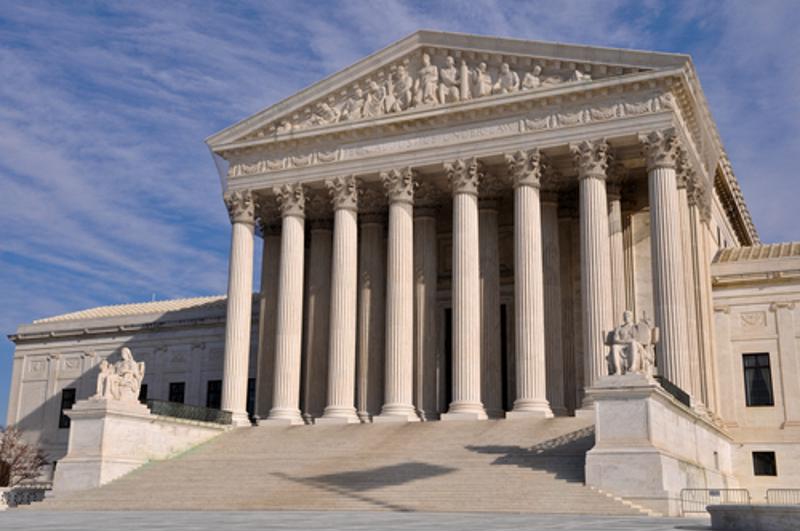Tech giant Google could soon be poised to pay billions of dollars in damages related to its use of open source Java programming code and a resultant copyright dispute with Oracle Corporation.
The Justice Department recommended recently in a brief from the office of Solicitor General Counsel of Record Noel J. Francisco that Supreme Court justices decline to take up Google's petition for review or "certiorari" of rulings related to a decade-long copyright suit brought against it by Oracle, according to a Reuters report by Alison Frankel.
Oracle – which acquired the Java intellectual property in 2009 when it bought out Sun Microsystems – claims that Google's use of Java API to allow interoperability on its Android operating system constitutes a copyright violation, according to Computer Business Review. Android is an operating system first released by Google in 2008 that runs on smartphones and other compatible Internet of Things devices.
Google's defense: Copyright reversals hurt developers' ability to 'build on established foundations'
The September briefing marks yet another instance in which Google has had a request to review Oracle's right to copyright the Java API denied. The Justice Department SG's brief highlighted the fact that such a request was first refused by the Supreme Court in 2015.
Google previously won its case related to the claim that its use of Java API constituted fair use under copyright law on two occasions in a San Francisco federal court, but those rulings were subsequently reversed in the U.S. Court of Appeals for the Federal Circuit.
Since the rulings were reversed, Google has argued that federal appeals courts are divided over the copyright issue as it relates to APIs and other similar technologies, according to the Daily Signal.
As of the most recent development in the case in January 2019 when Google's petition for review was sent to Francisco's office, the technology giant has argued that Java's open-source nature does not allow the use of its APIs to fall under copyright law. According to Computer Business Review, Google has specifically claimed that APIs are a "method of operation" or "system," to use Java and is therefore, as a standalone, can't be considered copyrightable software.
Google's legal team has uniquely presented the case as an "opportunity for the justices to knock down barriers to technological innovation," and the company's supporters have echoed the argument, Frankel argued in her Reuters article. Furthermore, Google has argued that the Federal Circuit's initial reversals made it more difficult for programmers to "build on established foundations." Google supporters who have expressed their backing of company's argument in the case include computer scientists, software developers and even some of its biggest competitors, like Microsoft.

DOJ, Oracle arguments hold steady
In response to Google's argument that it could not have created Android without the Java API code, the DOJ pointed to other mobile operating systems (such as those produced by Apple and Microsoft) that were developed "from scratch," according to the brief. The DOJ's position against certiorari was also rooted in Google's use of Java API in the creation of a "competing commercial product" (Android) that did not have interoperability with Java.
"Petitioner copied 11,500 lines of computer code verbatim, as well as the complex structure and organization inherent in that code, in order to help its competing commercial product," the solicitor general's office explained in the September 2019 brief. "(The) petitioner's unauthorized copying harmed the market for respondent's Java platform."
Earlier in the year, Oracle's general counsel Dorian Daley claimed that Google's ultimate goal is to be "allowed the unfettered ability to copy the original…work of others as a matter of its own convenience and for substantial financial gain," according to Computer Business Review.
For example, those disappointed by the DOJ's recommendation included Stanford Law professor Mark Lemley, who said in a Twitter post that the brief contained "some completely indefensible statements." In another tweet, Lemley said that those including the "computer science and academic" communities are "on the other (Google) side."
According to the Daily Signal, Google saw a victory in the case's first trial in 2012 as the result of a deadlocked jury, and that decision was reversed in 2014 at the hands of the Federal Circuit. A new trial was ordered and Google's appeal to the ruling was rejected in 2015. In 2016, Google's fair use victory in a second trial was also overturned by the federal circuit and returned to a lower court for a further review.
For businesses intrigued by this matter, it's critical to remember that further highlights Java's vulnerability as a programming language, and using it as a tool for IT modernization is simply unwise.
Here at the Inventu Corporation, we equip organizations of all sizes with a revolutionary terminal emulation tool called the Flynet Viewer. This solution allows developers to craft reliable and safe software using clean HTML and JavaScript hosted on secure Windows servers. Overall, the Flynet Viewer supports streamlined IT modernization and meets employer and staff expectations in a way that feels both familiar and simple. Contact us today or review our extensive product catalog to see how Inventu can help you rid your servers of unsafe Java.


